Our 11th June one-day Virtual Crowd Summit on Crowdfunding received great praise from the attendees. It was structured in three parts: Parts 1 and 2 focused on Europe, first Rewards Crowdfunding and then Equity Crowdfunding; Part 3 featured speakers from North America covering rewards and equity fundraising, regulatory control and use of crowdfunding by corporates. This article covers Parts 1 and 2 that featured European speakers who shared an amazing array of crowdfunding tips and insights.
Our CEO Epi Ludvik set the parameters for the day with references to moments and monuments in history that were achieved by many thousands of people working in concert: the Panama Canal, the pyramids of ancient Egypt, the Empire State Building. The power of collaboration and co-creation is certainly not new, though harnessing them through personal technology has given each of us the ability to mobilise previously unimaginable numbers of people around the world is.
Reward-based Crowdfunding
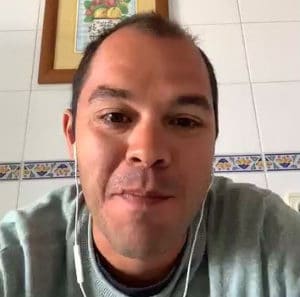 Yoann Nesme, Manager and Co-founder of the Portuguese platform PPL, encourages people to innovate, be empowered and grow through initial use of reward crowdfunding to realise long-term business ambitions. And to also realise and take advantage of reward crowdfunding providing so much more than simply money through generating orders.
Yoann Nesme, Manager and Co-founder of the Portuguese platform PPL, encourages people to innovate, be empowered and grow through initial use of reward crowdfunding to realise long-term business ambitions. And to also realise and take advantage of reward crowdfunding providing so much more than simply money through generating orders.
Rewards crowdfunding allows startups to check demand at their chosen price level; generate pre-orders to de-risk a first-time production run; and recruit early backers who are possibly going to become long-term brand ambassadors, with an emotional as well as a transactional connection.
His crowdfunding tips included it is important to remain realistic, and even if a project hits a rich vein of backers and it is tempting to keep accepting orders, it is important to not put too much pressure on what is perhaps an untested supply chain. Putting it another way, “don’t be greedy!”
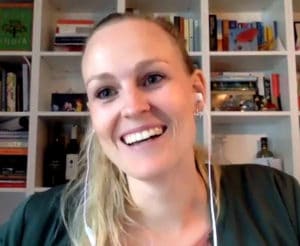 Corine Leunge is responsible for the international business development at the Voor je Buurt civic crowdfunding platform based in Amsterdam, Netherlands. Civic crowdfunding enables residents to influence local authority planning and spending decisions, and enables local authorities to operate with greater transparency and accountability to their electorates over their decision-making and budgeting.
Corine Leunge is responsible for the international business development at the Voor je Buurt civic crowdfunding platform based in Amsterdam, Netherlands. Civic crowdfunding enables residents to influence local authority planning and spending decisions, and enables local authorities to operate with greater transparency and accountability to their electorates over their decision-making and budgeting.
Corine identified four key elements of successful civic crowdfunding projects: a persuasive story to start raising interest and support from the bottom-up; media visibility to deliver higher, top-down impact; funding to be able to make things actually happen at a local level; post-project accountability back to donors, participants and other stakeholders. The final element is important to involve those people and secure their support for other future projects.
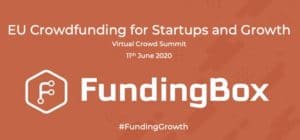 FundingBox, headquartered in Spain with offices in Poland, Denmark and Czech Republic, is a collaborative space where professionals from all over the world can find inspiration and funding opportunities. David Seoane Vilarino is Senior Project Program Manager and he presented a session on how the EU supports crowdfunding projects run by business startups. All the details he provided are on the FundingBox website.
FundingBox, headquartered in Spain with offices in Poland, Denmark and Czech Republic, is a collaborative space where professionals from all over the world can find inspiration and funding opportunities. David Seoane Vilarino is Senior Project Program Manager and he presented a session on how the EU supports crowdfunding projects run by business startups. All the details he provided are on the FundingBox website.
New Zealander Nathan Rose recently published a book on rewards crowdfunding tips and best practices, based on his interviews with two dozen successful project leaders. Using his years of experience he has identified marketing actions from successful projects up to five years ago that are now less effective, and he’s also spotted what today’s successful reward crowdfunding projects have in common.
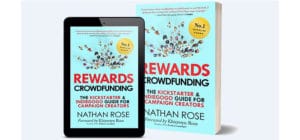
Nathan Rose’s book on Rewards Crowdfunding is available at Amazon
Top of his list of what to do these days is run paid-for digital advertising to build a bigger crowd of people who know about your project and follow you. What’s less worthwhile is sending out generic press releases. PR agencies in general show a low ROI through their reliance on generating coverage in traditional media. However it is achieved, Nathan has found media coverage does not generate much immediate traffic, though being able to add media outlet logos to a website and a crowdfunding pitch are a positive and powerful endorsement, so it does provide some eventual value.
Equity Crowdfunding
Joanathan Medved, CEO of the Israeli platform OurCrowd, believes Covid-19 has been a catalyst to generate two years worth of tech transformation in two months. It’s been – it still is – a period causing a societal crisis, not just an economic financial one. Sectors such as e-commerce and distance learning have gone in to warp speed. To emphasise this he sped through a whistle stop collection of new tech startups, many of which are directly Covid19-related as they include searches for a vaccine and better diagnosis.
In short, it is a great moment for new innovations and breakthroughs, most of which hinge on artificial intelligence.
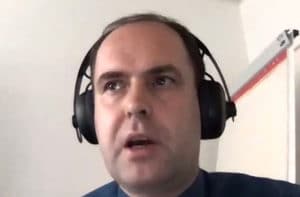 In Germany, the entrepreneur, scientist and journalist Karsten Wenzlaff lectures on alternative finance ecosystems at the University of Hamburg. He was editor of the recently published annual Cambridge Centre for Alternative Finance report, and is Secretary General of the German Crowdfunding Association. His presentation gave us a wide appreciation of what’s been happening there recently.
In Germany, the entrepreneur, scientist and journalist Karsten Wenzlaff lectures on alternative finance ecosystems at the University of Hamburg. He was editor of the recently published annual Cambridge Centre for Alternative Finance report, and is Secretary General of the German Crowdfunding Association. His presentation gave us a wide appreciation of what’s been happening there recently.
Right now, investors have more confidence in real estate crowdfunding in Germany than the stock market. Residential and care home developments are particularly popular. Big platforms in this sector include Exporo and Bergfuerst.
Kapilendo provides small and medium enterprises with a white label crowdfunding platform that they can use to raise up to €400,000. It is proving very popular with businesses raising money to survive to the end of lockdown and while they revive their income.
A first-ever collaboration between six crowdfunding platforms provides health and medtech startups with a larger critical mass of potential investors to make larger funding targets more realistic. Each platform delivers exactly the same terms of offers to investors and charges to the projects.
The final speaker, Rob Wilson, founder of Crowdfunding Champions, reported that UK retail investors are still in the market and supporting startup projects. Among his key equity crowdfunding tips and insights was an idea of how much time to allow.
 Initial preparation should include putting intellectual property in place, creating a bank of images to use, listing likely FAQs, ensuring all documents are sound, and an explanation of how the money raised will be used.
Initial preparation should include putting intellectual property in place, creating a bank of images to use, listing likely FAQs, ensuring all documents are sound, and an explanation of how the money raised will be used. - Once this is complete, equity crowdfunding rounds are often accessible to only a private group of potential investors, and the onus is on the project leader to conduct personal pre-selling to reach a level of funding guarantees that equate to at elast 30% of the total financial target.
- After this is achieved, the round is opened to the public for one to two months.
- On completion, if the target has been reached, there will then be a two week period in which administrative and legal details are completed.
In total, a successful round of equity crowdfunding can easily take a minimum of three months. Utmost persistence is required during this time: follow up every lead and contact, bear in mind that retail investors are likely to make contact in the evenings and at weekends, and be available for meetings – you must not stop! Let’s remember that this is a pivotal few weeks that could change someone’s life forever.
To close Part 2, we had a live crowdfunding pitch from the Business Development Director of Xampion.io from Finland, Matt Joutsikoski. Xampion is a tracking device for players in junior football clubs to be able to monitor their performance in training and matches, just like at top professional clubs. Sensors in boot insoles transmit data to an app on each player’s smartphone and they can see the distances they covered, the number of kicks and passes made, at what strength and with what part of the foot. Each player can then transmit their data to the team coach. ![]()
Xampion’s project is running on the Invesdor platform and at the time of writing they were halfway to their minimum target of €150,000.
Don’t miss our Crowdfunding Day on December 9, 2021
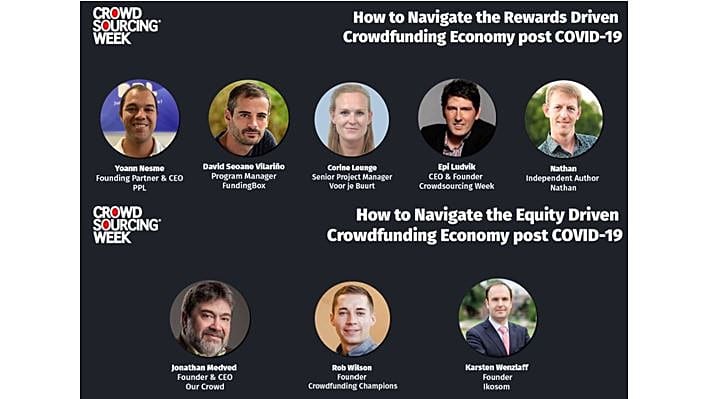

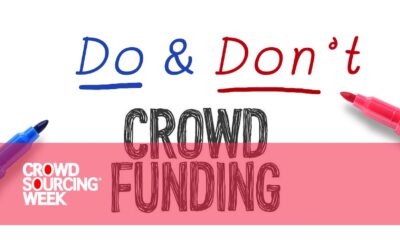


0 Comments